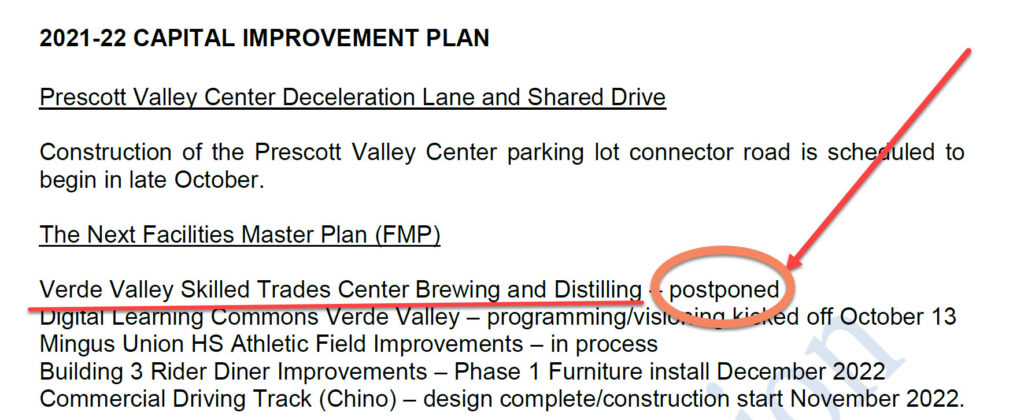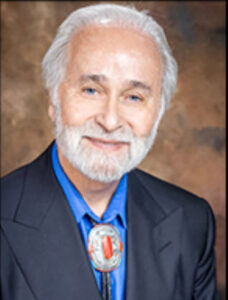May spend an estimated $146,000 for acoustical and technology upgrades for rooms (out of $50 to $70 million in total County-wide projects) but nothing for additional programs
The Yavapai Community College District Governing Board approved 4-1 a five-year capital development program in concept at its November 2022 meeting. It estimated $50.14 million in construction costs and $77.13 million in total project development costs. It appears from the planning documents that a only tiny amount of the development funding is going to the Sedona Center.
When listing priorities for capital development, the planning documents indicate that the College plans in concept to spend only $146,000 on the Sedona Center over the next five years. The money allocated to the Center is aimed at improving technology and acoustical issues in the classrooms.
You may view the excepts from the adopted Master Plan that appear below to confirm the Blog’s analysis. Note that during the Priority Projects list shows the College expending a total of $50.14 in construction costs and $77.13 in total costs.
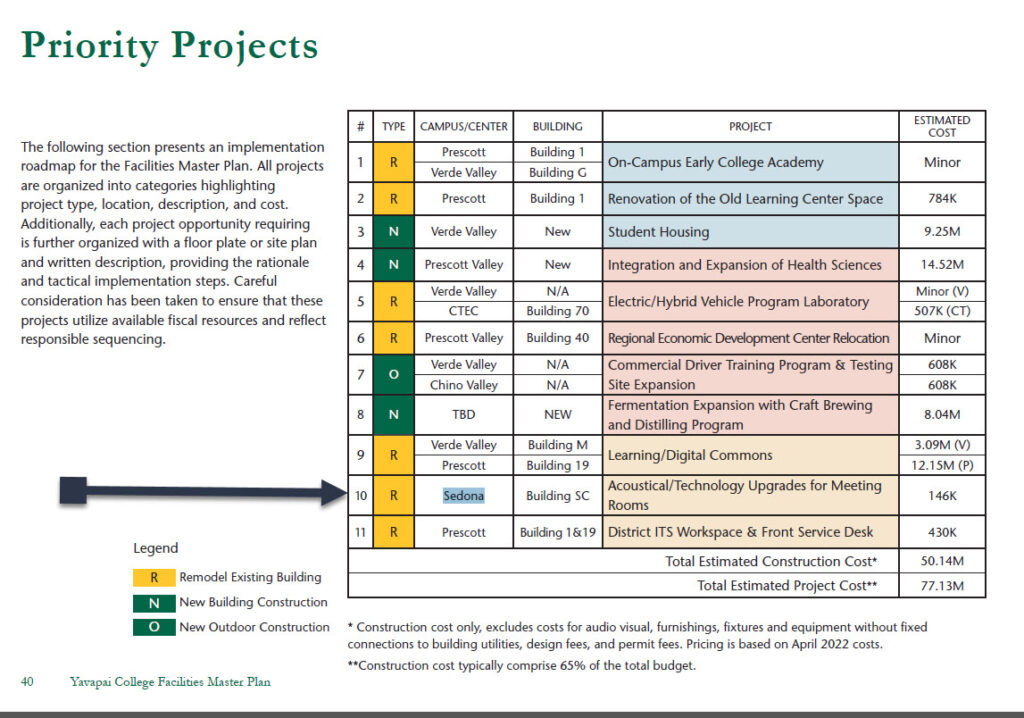

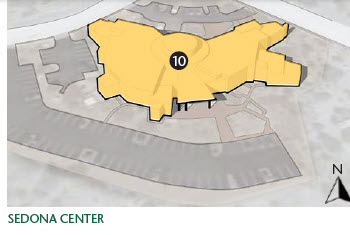
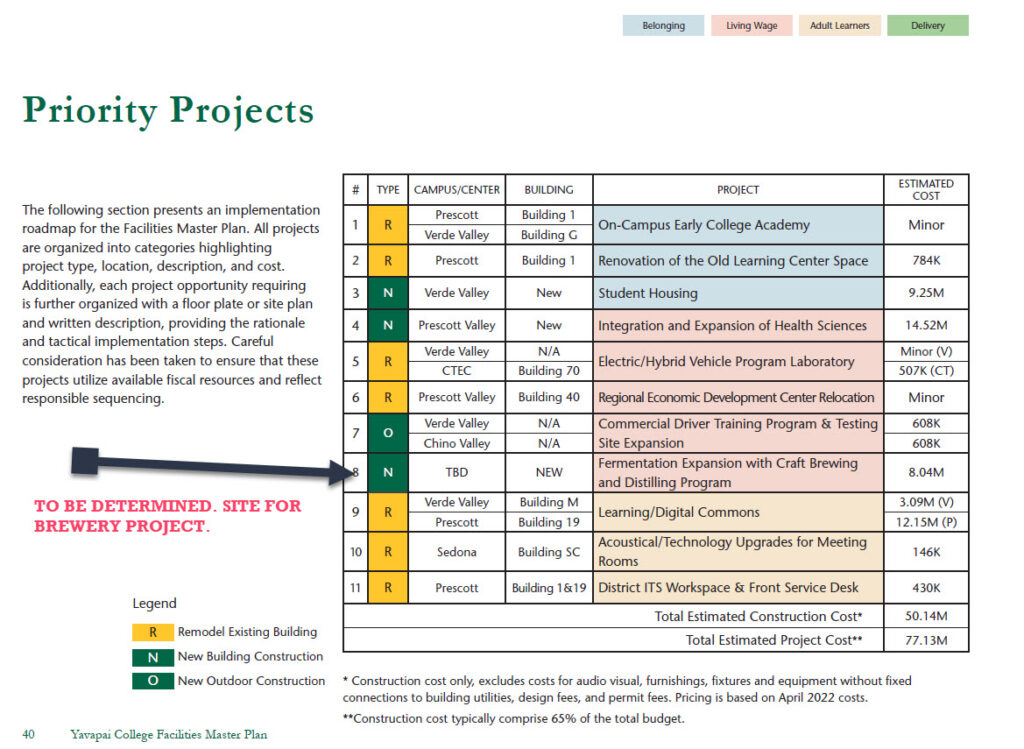

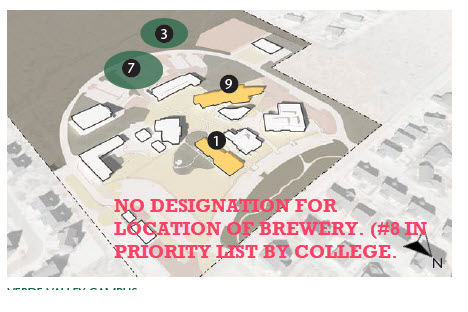
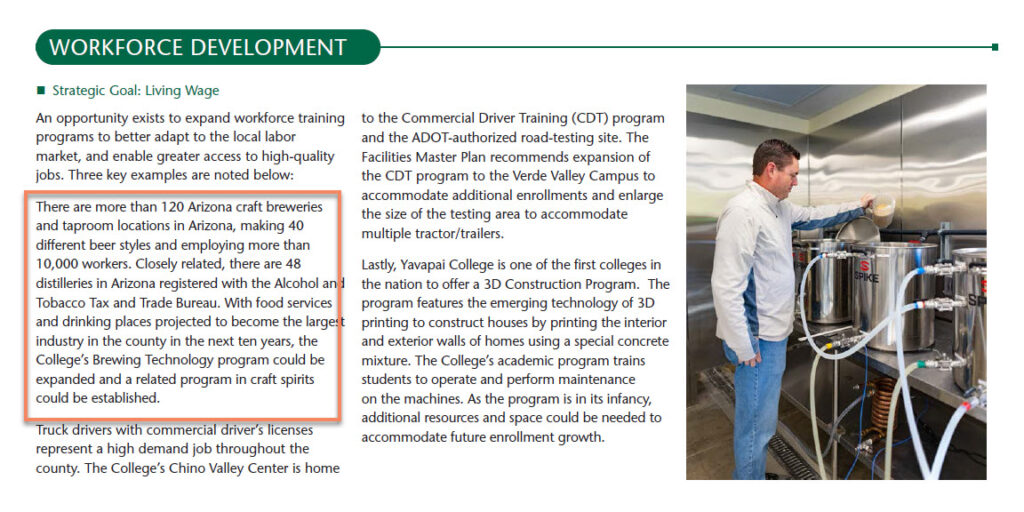
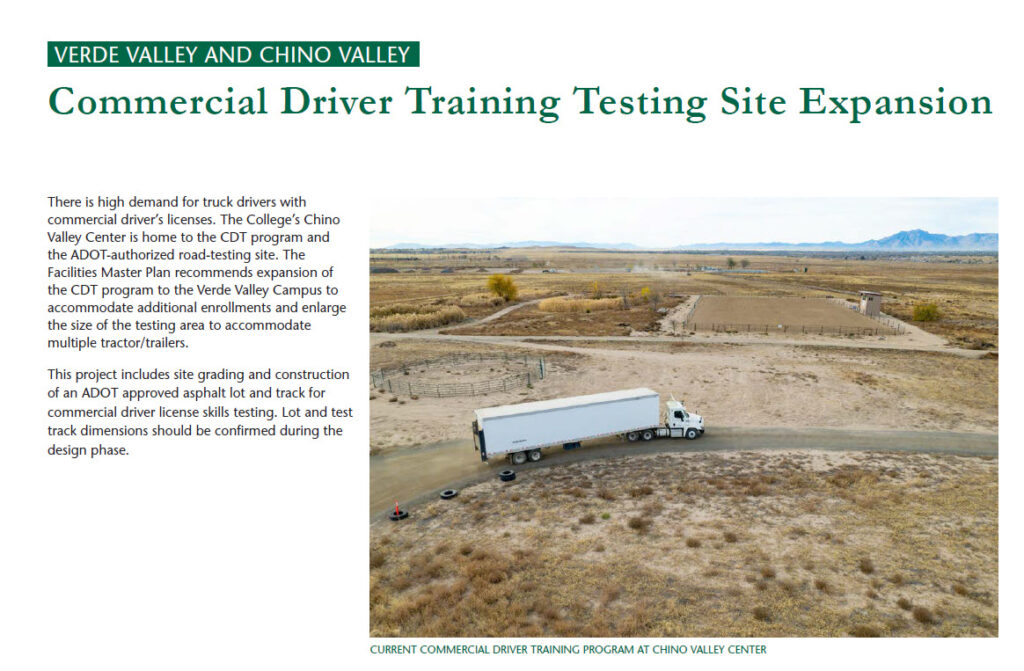
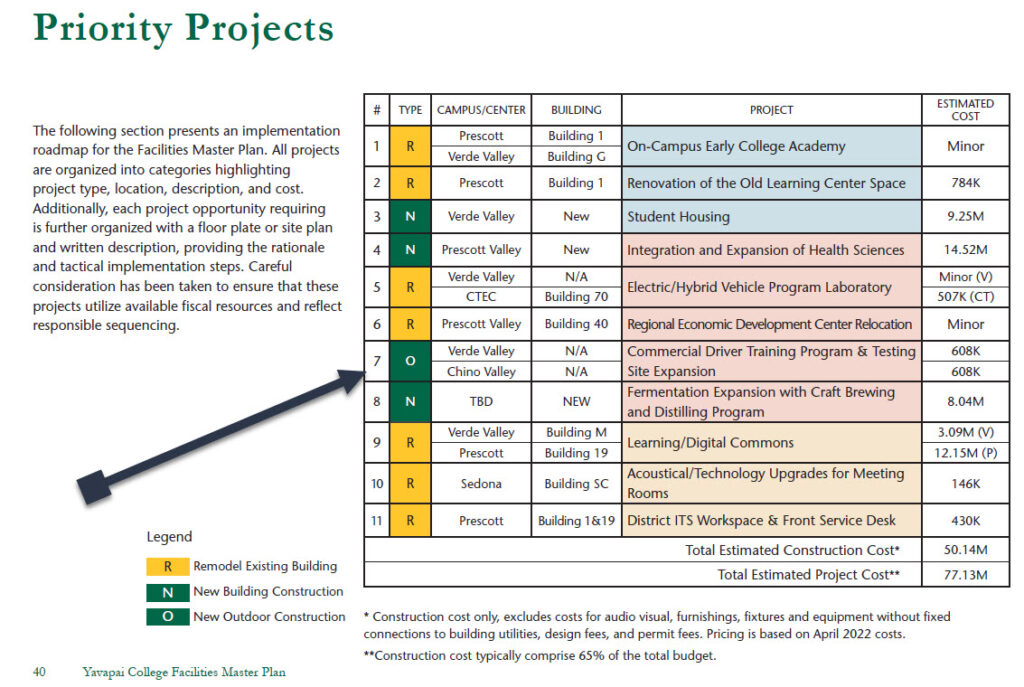
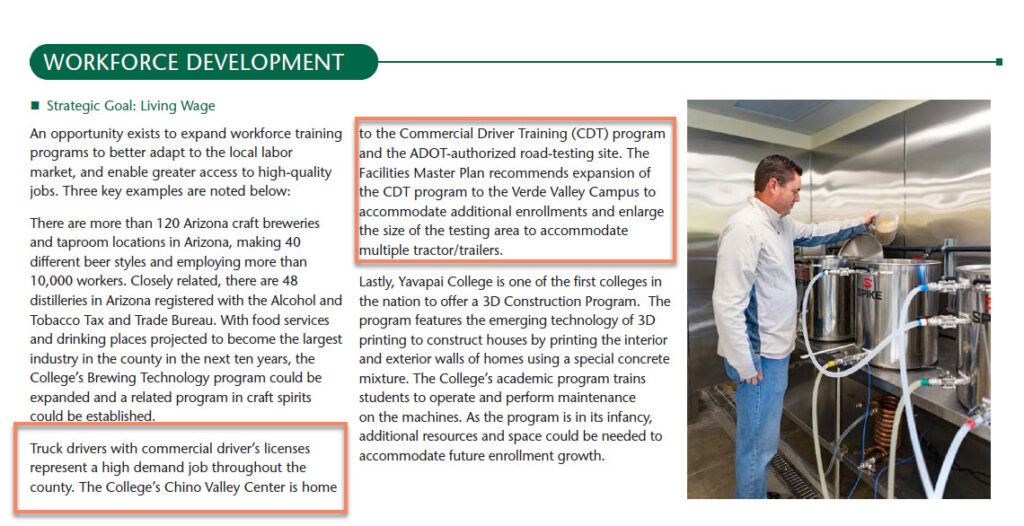
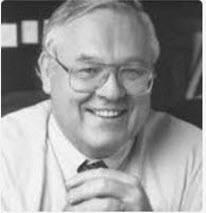

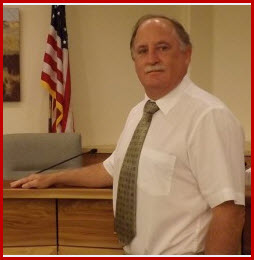
 On August 9 of this year, Yavapai Community College asked the District Governing Board to convene a special session and devote it exclusively to obtaining Board approval for charging fees amounting to $14,388 per student for the newly resurrected private pilot program. The Board complied and held a one-hour special session.
On August 9 of this year, Yavapai Community College asked the District Governing Board to convene a special session and devote it exclusively to obtaining Board approval for charging fees amounting to $14,388 per student for the newly resurrected private pilot program. The Board complied and held a one-hour special session. The rumor has been circulating in the Verde Valley that the Yavapai Community College Administration has “postponed” development of the Ten Million dollar Verde Valley beer brewing brewery project. Although there has been no formal announcement made to the public or the District Governing Board about the project, the Blog discovered an announcement of the postponement buried in the October 2022 Facilities Management Newsletter.
The rumor has been circulating in the Verde Valley that the Yavapai Community College Administration has “postponed” development of the Ten Million dollar Verde Valley beer brewing brewery project. Although there has been no formal announcement made to the public or the District Governing Board about the project, the Blog discovered an announcement of the postponement buried in the October 2022 Facilities Management Newsletter.